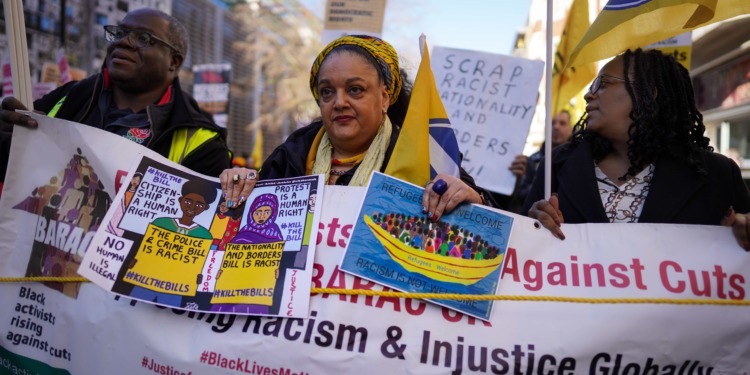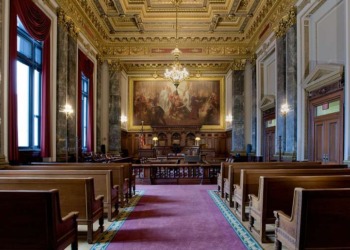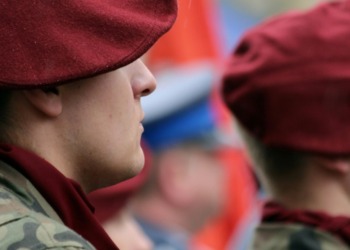On Monday, the UK high courts ruled the UK government’s plan to send migrants to Rwanda lawful. However, the cases of eight asylum-seekers would need to be reconsidered.
On April 14, 2022, the UK Home Office announced a Migration and Economic Development Partnership with Rwanda (MEDP) to relocate asylum-seekers arriving in the UK through “illegal, dangerous, and unnecessary methods” to Rwanda. On the evening of June 14, the first plane, which was set to carry 130 asylum-seekers from the UK to Rwanda, was grounded by an emergency intervention from the European Court of Human Rights.
The deal has been in the courts since then, facing legal challenges from several asylum-seekers, the Public and Commercial Services union, and the charities Care4Calais, Detention Action, and AsylumAid. While the courts declared that the UK’s Rwanda deal was not unlawful, they also ordered that the cases of eight asylum-seekers had not been “properly considered.”
The UK government initially paid Rwanda £120 million to take an “unlimited” number of asylum-seekers. The Home Office claimed this was an attempt to “redress the imbalance between legal and illegal migration routes.” They seek to deter people smuggling, and people coming to the UK in small boats. Despite the attempt at a deterrent, 2022 has seen record numbers of arrivals by small boat, numbering more than 44,000: more than four times as many as in 2020.
If an illegal arrival seeking asylum has passed through “a safe country” in which they could have claimed asylum, the UK government will return them to that country, or send them to a third safe country. This is what the UK government deems Rwanda to be. On arrival, asylum-seekers will be processed, and may be granted asylum. Those whose claims for protection are rejected will, says the Home Office, be given the opportunity to remain in Rwanda, or to return to their home countries.
However, many claim that Rwanda cannot be deemed a “safe country” due to its human rights records. The UK government itself ranks Rwanda 47th out of 49 regional countries on a physical violence index, which it defines as being “the extent to which physical integrity – freedom from political killings and torture by the government – is respected.” It ranks 45th and 44th for freedom of association and political liberties indices respectively.
Internal memos brought to light during the court cases have raised concerns about asylum-seekers being forcibly recruited into the Rwandan military, and forced to fight in neighbouring countries.
Related Articles: The United States: Russian Asylum Seekers Not Welcome | “Plain Wrong and Racist”: Britain’s New Migration Plans | How Climate Change Will Redraw Maps and Borders
Peace in Rwanda is by no means assured, with the resurgence of activity by a rebel movement known as M23 on the border between the Congo, Rwanda, and Uganda. Although, officially, Rwandan President Paul Kagame denies responsibility for M23, many link the two, claiming at least support for the group, if it is not a de facto branch of the Rwandan army itself.
Some have been drawing links between the UK’s recent silence on human rights abuses in Rwanda with the new migration deal.
The United Nations High Commissioner for Refugees has condemned the UK’s deal with Rwanda, warning that “the Bill undermined the 1951 Refugee Convention,” which the UK itself helped to found. “At the same time, if implemented, the policies will risk the lives and well-being of vulnerable people.”
In a Twitter thread about the policy, Care4Calais stated that “[p]eople who have suffered the horrors of war, torture, and human rights abuses should not be faced with the immense trauma of deportation to a future where we cannot guarantee their safety.”
Some thoughts while we wait to hear the Rwanda judgement
People who have suffered the horrors of war, torture and human rights abuses should not be faced with the immense trauma of deportation to a future where we cannot guarantee their safety.
— Care4Calais (@Care4Calais) December 19, 2022
They plan to continue legal action to attempt to block the bill.
There is no doubt that these deportations are hugely traumatic, with security officers from the original flights sharing distressing accounts of deportees self-harming in despair on board the first Rwanda flight before it was grounded.
The charity further points out the discrepancy between the UK government’s treatment of asylum-seekers from Ukraine and Hong Kong, versus anywhere else in the world. If the aim is really to prevent people smuggling, they argue, a more effective way to have safe and monitored passage into the UK would be to issue visas.
Prime Minister Rishi Sunak and Home Secretary Suella Braverman are both keen to follow in their predecessors’ footsteps, and enact the deportations “as soon as possible” following the high court’s rulings. But would it even work?
There are concerns that the UK’s exportation of its asylum-seekers will lead other European countries to do the same, and undermine the Refugee Convention. At the same time, it isn’t clear that this policy will even work.
Both Israel and Denmark have struck similar deals in the recent past with Rwanda, with no success. Denmark signed an accord in 2021, but as yet, no asylum-seekers have been sent to Rwanda. In 2018, Israel attempted a similar matter, sending unwanted migrants to Rwanda and Uganda. The Rwandan officials did not process the new arrival of asylum-seekers but removed their passports, and then left the refugees to do as they pleased, presumably, resuming a migratory journey. Israel ultimately abandoned the scheme due to public unpopularity.
Finally, one has to wonder at the unpopularity of any plane company that undertakes this operation. The original airline, Privilege Charters, pulled out of its deal with the UK Home Office after facing pressure from campaigners. With the eyes of the world on the UK, one may be reminded of the difficulty in finding an executioner willing to execute King Charles II in the British Civil War.
Editor’s Note: The opinions expressed here by the authors are their own, not those of Impakter.com — In the Featured Photo: Activists during a protest against the government’s racist immigration policies including the Nationality and Borders Bill. Featured Photo Credit: Alisdaire Hickson/Flickr










